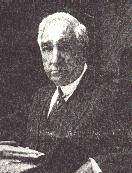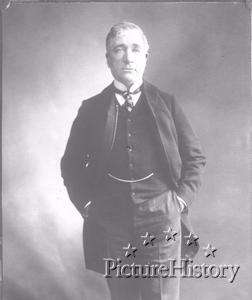Brilliant Orator; Influence on Churchill Bourke Cockrane was a brilliant orator The following is taken from an article entitled Winston Churchill: A Study in Oratory by Thomas Montalbo. At age 21, Churchill came to the United States and met Bourke Cockran, a New York Congressman whom he described as "a remarkable man. . .with an enormous head, gleaming eyes and flexible countenance." But most of all, Churchill admired Cockran for the way he talked. The Congressman had a thundering voice and often spoke in heroic and rolling phrases. When Churchill asked his advice on how he could learn to spellbind an audience of thousands, Cockran told him to speak as if he were an organ, use strong words and enunciate clearly in wave-like rhythm. They corresponded for many years. Adlai Stevenson, himself a notable speaker, often reminisced about his last meeting with Churchill. "I asked him on whom or what he had based his oratorical style. Churchill replied, ‘It was an American statesman who inspired me and taught me how to use every note of the human voice like an organ.’ Winston then to my amazement started to quote long excerpts from Bourke Cockran’s speeches of 60 years before. ‘He was my model,’ Churchill said. ‘I learned from him how to hold thousands in thrall.’" |
(Roy Jenkins, well-known British politician and statesman, died in January 2003. He was a biographer of note. In 2001 he wrote a much admired life of Winston Churchill. In it he devotes about a page to Churchill's relationship with William Bourke Cockran (born in Ballinacarrow in 1854). Below is abstracted from his book.)
Cockran took Churchill to stay at his Fifth Avenue residence. He gave a stimulating dinner party for Churchill on his first evening ashore, and generally entertained him so interestingly and generously as to imbue him with a lasting sense of the excitement of New York. The electricity of New York in that mid-autumn week just before his twenty-first birthday was possibly of even greater significance for his future than the baptism of fire in Cuba. The credit for making this impact so strong upon this future honorary citizen of the United States must rest largely with Bourke Cockran. |
Back to home page

